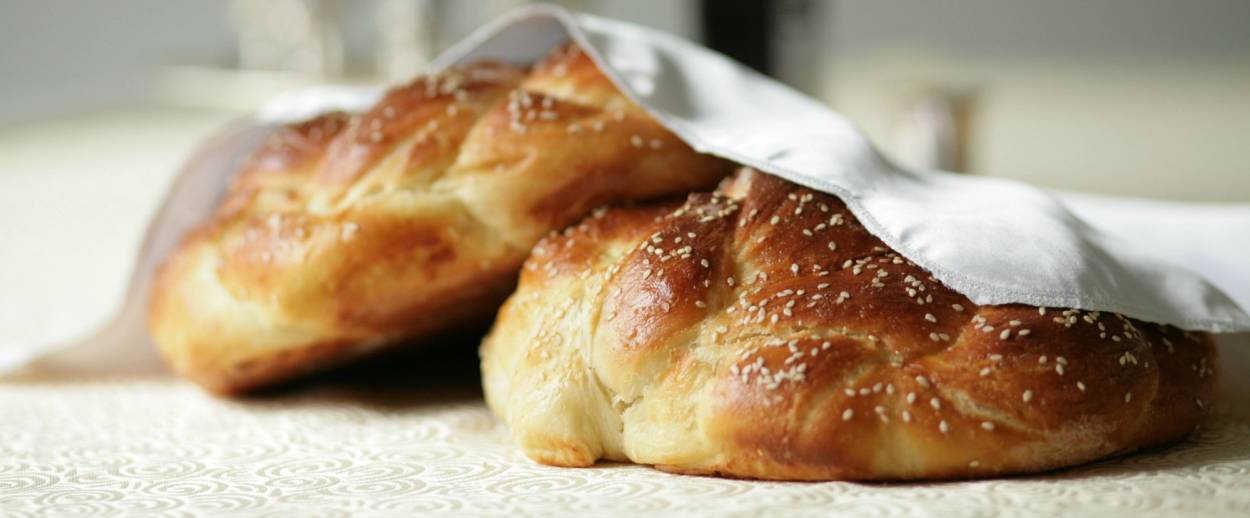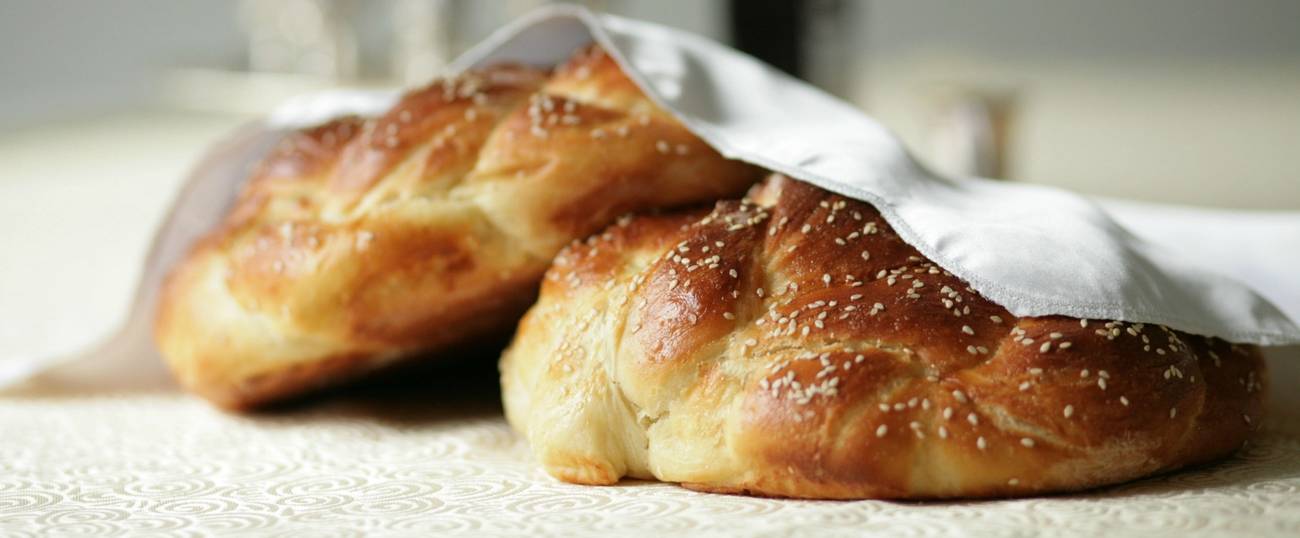A Tale of Love and Challah
How better to surprise my daughter on her wedding day than with the ultimate Jewish comfort food?




Eight o’clock on a Friday morning, two-and-a-half days before my daughter’s wedding, and here I am, in the basement of an Israeli hotel kitchen. Along with my dear friend and co-conspirator, Katja, I am assembling yeast and water, flour and sugar, honey, eggs, salt and oil to surprise the bride-to-be with freshly baked challah for Shabbat dinner that evening. We are doing it together, with the help of so many others because, just as it takes a village to raise a child, it can take a village to celebrate her marriage, too.
I considered it a small coup to have taken over a hotel kitchen in Israel. For the past several months, I had been upset that I couldn’t make my daughter Shabbat dinner filled with her favorite foods, including my challah, as I would have done had we been in America. But we were in Israel, guests at a hotel, gathering for the weekend before her wedding on Sunday, and who would be so bold as to ask a hotel chef, “Can I use your kitchen to make challah for 80 people on Friday?”
Me.
I found the executive chef and presented my case.
“All of my daughter’s life,” I said, “I have made Shabbat dinner for my family. And part of that dinner was the challah I prepared for them. Could I, please, work in your kitchen this Friday morning, and make the challah for our Shabbat meal?”
He paused. I waited. He hesitated. I watched.
“I may have a problem with insurance coverage for you,” he said. I understand. “What have you done in the past, when others have made similar requests?” I asked.
Another smile. “I have been the chef here for 15 years,” he said. “You are my first such request.”
Silence.
“Thank you for considering this,” I said. “Here is my telephone number in case you could find a way to allow me into your kitchen.”
A smile again and I left, fairly certain that I would not hear from him again.
Israel is a land of contrasts. On one hand, you fear that everyone from the taxi driver to the shopkeeper is taking advantage of you. On the other, when you are celebrating a happy occasion, it feels like everyone you meet is celebrating with you. Did the chef mean what he said when he told me that insurance might be an issue, or was he looking for “an out,” not interested in being bothered?
The following day, the chef called me. “Come down to the kitchen on Friday morning,” he said. “I will have all of the ingredients waiting for you.”.
And that is how Katja and I found ourselves in the heart of his kitchen, working with the Arabic-and Hebrew-speaking kitchen staff, who were curious, helpful and delighted to see a mother and friend preparing braided breads for the bride-to-be, just as their own mothers bake breads in their home kitchens. What is more elemental and universal than baking bread and breaking bread for a joyous event and sharing it with the community?
The flour was different than what we use in the United States, as was the oil. But we did what we do in New York on a typical Friday, and we hoped that this batch would come out well, despite the unknown variables.
The pastry chef, a Palestinian Arab man, had never seen challah made from scratch. He watched us work from the first step to the last, delighting in the braided and seeded loaves that emerged from his ovens. And the whole kitchen staff assured us that they would keep the breads safe and hold them until the communal Shabbat dinner that evening.
When our 80 friends and family members gathered for Shabbat dinner, I asked my daughter to join me to say the blessing over the bread. I explained to her that I was missing earlier in the day because I was baking this gift for her and for all assembled, to fill her on this special Shabbat with love from her mother and her family and her community. And how that community had grown from Katja and me, to the executive chef of the hotel, to the hotel’s pastry chef and kitchen workers to the people seated in this room and to the waiters serving in this room–we had all gathered to bless her and convey our hopes and dreams for her and her groom.
And while so many of the people who let us into their kitchen and surrounded us while we shaped the breads were not able to taste them–they were fasting for Ramadan–the love from all was there. She felt it and it enveloped her in warmth, setting the tone for the weekend, and the wedding, ahead.
Rachel Ringler is a writer, museum docent, challah instructor, and cook who has strong feelings about the important role food plays in life, in family and in community.